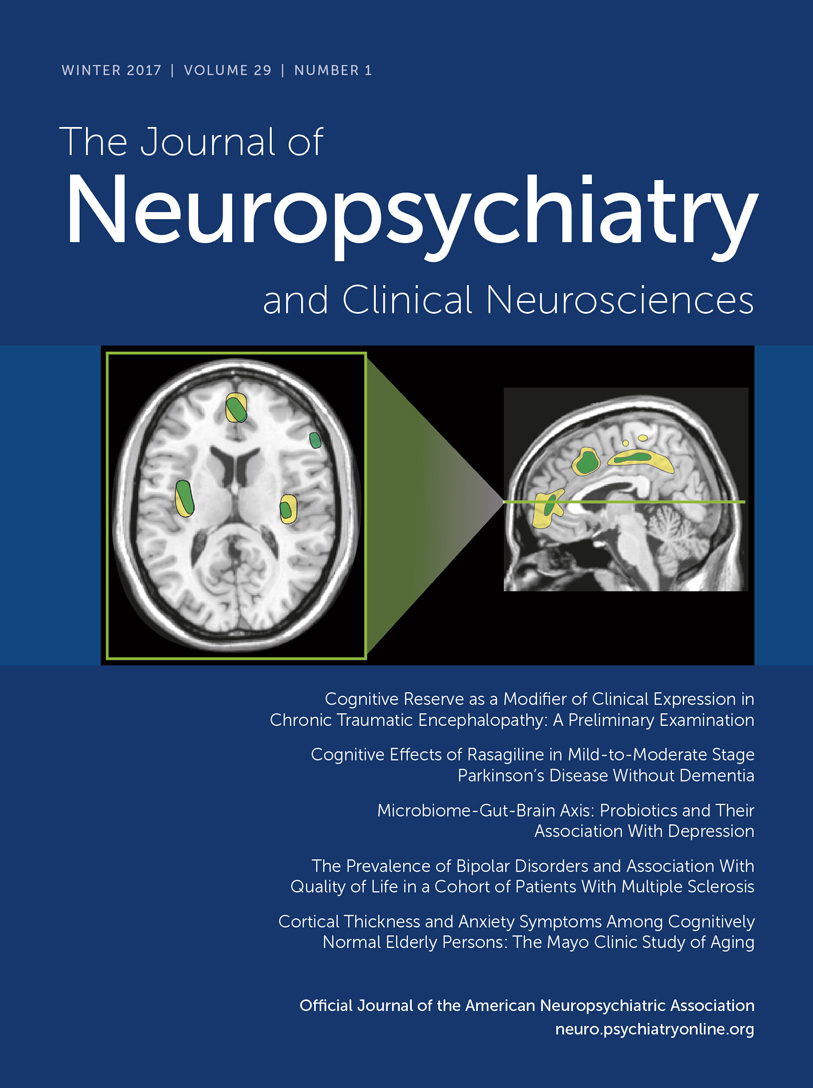Microbiome-Gut-Brain Axis: Probiotics and Their Association With Depression
Abstract
To assess the association of probiotics with depression, a large population-based cross-sectional study was conducted. National Health and Nutrition Examination Survey adult participants from 2005 through 2012 were included. Exposure was defined as having consumed any probiotic food or supplement on any of the interview days. Subjects were classified as depressed if Patient Health Questionnaire scores were ≥10. Of the 18,019 subjects included, 14.11% consumed probiotics. Unadjusted analysis suggested that subjects who consumed probiotics had lower odds of depression (OR=0.58, 95% CI=0.45–0.75). After adjustment for characteristics associated with depression and probiotic exposure, the effect was attenuated (OR=0.82, 95% CI=0.61–1.1) and no longer significant. Use of probiotics is not associated with lower rates of depression in this national sample.



